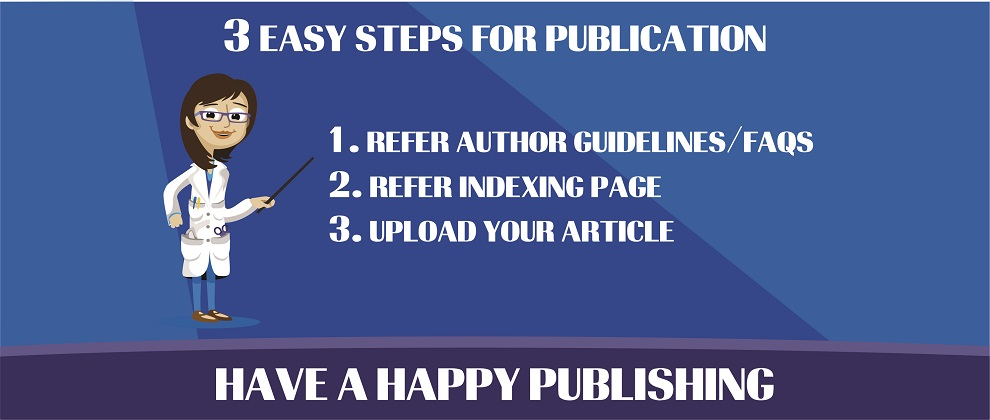Volume : 6, Issue : 6, June - 2017
A STUDY OF VITAMIN D IN DIFFERENT STAGES OF RENAL CELL CARCINOMA
Dr. B. Natarajan, Dr. J. Pratheeba
Abstract :
<p> <b style="text-align: justify; font-size: 12px;"><span style="font-size: 12pt; line-height: 150%; font-family: "Times New Roman", serif;">Aim:</span></b><span style="text-align: justify; font-size: 12pt; line-height: 150%; font-family: "Times New Roman", serif;"> The purpose of this study is to investigate the diagnostic value of Vitamin D </span><span style="text-align: justify; font-size: 12pt; line-height: 150%; font-family: "Times New Roman", serif;">in renal cell carcinoma. </span><span style="text-align: justify; font-size: 12pt; line-height: 150%; font-family: "Times New Roman", serif;">Renal cell carcinoma (RCC) is the one of the dreadful urological carcinoma. <span style="background-image: initial; background-position: initial; background-size: initial; background-repeat: initial; background-attachment: initial; background-origin: initial; background-clip: initial;">Incidence of renal cell carcinoma (RCC) is 2-3% of all malignancy. It is the most common renal malignancy. Country to country the incidence varies and mostly common in the western part of the world. Incidence of RCC is less in Asian country, particularly in India</span>. </span><span style="text-align: justify; font-size: 12pt; line-height: 150%; font-family: "Times New Roman", serif;">Despite aggressive efforts, treatments are unsatisfactory and survival rates dismal. Clearly development of new approaches for studying and treating renal cell carcinoma are needed. </span><b style="text-align: justify; font-size: 12px;"><span style="font-size: 12pt; line-height: 150%; font-family: "Times New Roman", serif;">Design/Methods:</span></b><span style="text-align: justify; font-size: 12pt; line-height: 150%; font-family: "Times New Roman", serif;"> Renal Cell carcinoma</span><span style="text-align: justify; font-size: 12pt; line-height: 150%; font-family: "Times New Roman", serif;"> patients were selected on the basis of</span><span style="text-align: justify; font-size: 12pt; line-height: 150%; font-family: "Times New Roman", serif;"> stages of cancer</span><span style="text-align: justify; font-size: 12pt; line-height: 150%; font-family: "Times New Roman", serif;">.</span><span style="text-align: justify; font-size: 12pt; line-height: 150%; font-family: "Times New Roman", serif; color: rgb(35, 31, 32);"> </span><span style="text-align: justify; font-size: 12pt; line-height: 150%; font-family: "Times New Roman", serif; color: rgb(35, 31, 32);">In this study, we demonstrated that </span><span style="text-align: justify; font-size: 12pt; line-height: 150%; font-family: "Times New Roman", serif; color: rgb(35, 31, 32);">serum vitamin D levels very helpful monitoring for different stages of Renal Cell carcinoma.<b> </b></span><b style="text-align: justify; font-size: 12px;"><span style="font-size:12.0pt;line-height:150%;font-family:"Times New Roman",serif; mso-fareast-font-family:"Times New Roman";color:#231F20">Results:</span></b><span style="text-align: justify; font-size: 12pt; line-height: 150%; font-family: "Times New Roman", serif;"> The levels of Vitamin D </span><span style="text-align: justify; font-size: 12pt; line-height: 150%; font-family: "Times New Roman", serif;">were found to be significantly decreased in Renal cell carcinoma when compared with control </span><b style="text-align: justify; font-size: 12px;"><span style="font-size:12.0pt;line-height: 150%;font-family:"Times New Roman",serif;mso-fareast-font-family:"Times New Roman"">Conclusions:</span></b><span style="text-align: justify; font-size: 12pt; line-height: 150%; font-family: "Times New Roman", serif;"> Vitamin D </span><span style="text-align: justify; font-size: 12pt; line-height: 150%; font-family: "Times New Roman", serif;">as a steroid hormone. Its serum concentrations in healthy individuals positively correlate with Renal Cell Carcinoma. </span></p> <p class="MsoNormal" style="text-align:justify;text-justify:inter-ideograph; line-height:150%"><span style="font-size:12.0pt;line-height: 150%;font-family:"Times New Roman",serif;color:red"><o:p></o:p></span></p>
Keywords :
Cite This Article:
Dr. B. Natarajan, Dr.J. Pratheeba, A STUDY OF VITAMIN D IN DIFFERENT STAGES OF RENAL CELL CARCINOMA, GLOBAL JOURNAL FOR RESEARCH ANALYSIS : VOLUME-6 | ISSUE‾6 | JUNE-2017


 MENU
MENU

 MENU
MENU

